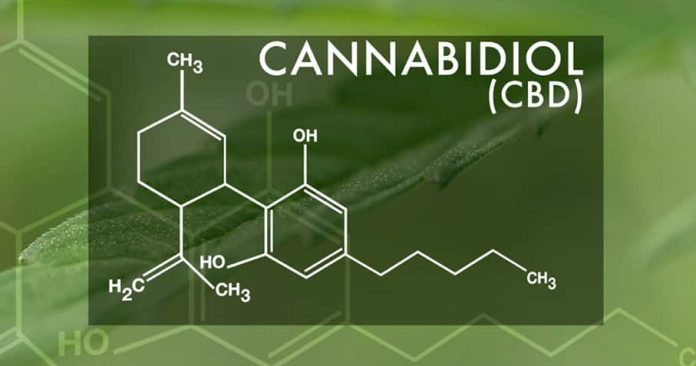
by Michael Austin, Wellness Contributor
29 states plus the District of Columbia have passed laws to legalize medical marijuana.
What is Medicinal Marijuana?
Medical cannabis was the wedge that started breaking apart the laws against cannabis use that had been in place for decades. The same psychoactive ingredients in cannabis used by recreational smokers have been found to have potent medicinal effects, including pain relief. As the dangers of prescription opioid misuse continue to get exposed, it could very well be that doctors will turn to cannabis as an alternative.
Yet pain relief, along with anti-nausea effects, aren’t the only reasons people consume cannabis. Cannabis has been implicated in helping sufferers across a huge variety of diseases. Unfortunately, the scientific research on how much of an effect cannabis has is a bit sparse to date. The war on drugs didn’t just harm users; it also harmed scientific exploration into the positive effects of these drugs. There are a lot of pilot studies right now, but full double-blind testing is far off and will take years to get certified.
Nevertheless, the research is promising and worth experimenting with if you live in a state where medical or recreational cannabis is legal. Here are some common diseases that cannabis works well with that you might not have expected.
Epilepsy
About one-third of all epilepsy sufferers have a form of the disease that is untreatable by any form of drug. Epilepsy causes seizures in the brain that manifest in many different ways (including full bodily convulsions) and can strike at any time. But one pilot study that followed 137 patients found that cannabis use can cut the number of seizures in half.
ADHD
Humans have a built-in system that responds to cannabinoids, the compounds found in cannabis. Cannabis consumption regulates the dopamine system. Dopamine dysfunction has been implicated as a cause of Attention Deficit Hyperactivity Disorder (ADHD). Cannabis has been shown to help with this issue as well as slowing down the parts of the brain that cause the distraction and hyperactivity of the ADHD brain.
Alzheimer’s
In one of the most exciting developments in cannabis research, THC has been shown to slow down the creation of beta amyloid plaque, which is the characteristic feature of Alzheimer’s disease. Furthermore, it does this at extremely low doses. Edible manufacturers are experimenting with low-dose cannabis in preparation for new DUI laws on cannabis. These same low-dose treats could prove very useful for Alzheimer’s sufferers and their families.
Crohn’s Disease
Crohn’s Disease is a debilitating and deeply embarrassing condition. In extreme forms, it can turn people into shut-ins. Cannabis may provide some hope for people with this condition, which causes the digestive system to be extremely sensitive due to inflammation. A small group of people were given cannabis for three months and asked to report their experiences. They reported their ability to function to be much improved and their quality of life increased. They also all gained weight, which is a very hopeful sign. Assimilating food or even just keeping it down can be hard for people with Crohn’s.
Arthritis
Arthritis can be crippling in the elderly. The inflammation of the joints causes them to seize up and become painful to move. Two studies have shown that cannabis consumption can attack arthritis on both fronts. In one study, 58 patients reported that they had less pain and slept better after taking a cannabis-based drug for the condition. The other, which studied long-term cannabis smokers, found markers that showed decreased inflammation in the body compared to others.
PTSD
Post Traumatic Stress Disorder (PTSD) is a debilitating illness caused by trauma. While not all states allow PTSD as a valid diagnosis to get medical cannabis, there is growing evidence of medical cannabis’ effectiveness in helping those with PTSD. Many veterans have turned to cannabis as a way to deal with the experiences they had in wartime. They are pushing for the federal government to lift the ban on cannabis so they can receive it through the VA. Considering how awful the disorder can be, this would be a major boon to those who served their country.
As we said earlier, the research on cannabis is far behind where it should be. But medical research into cannabis is a hot topic now, especially since medical marijuana has become legal in more than half of the U.S. This is causing an increase in marijuana investments and an overall increase in general interest in marijuana, both medical and recreational. Over the next few years, a flood of new research will give legislators the evidence they need to determine that cannabis is a safe treatment for a wide range of conditions and to claim that it should never have been made illegal.
Until that time happens, speak with your doctor about using cannabis in the treatment of these and other diseases; if you happen to be fortunate enough to live in a state where it is legal. Cannabis has far fewer side effects than the usual drugs used to treat illnesses, another driver for people who can’t take standard medications. This makes cannabis a particularly safe medication to try. The more positive voices we have about how medical cannabis can help people, the faster everyone can get access.
Thank you to our friends at Wellness.com for contributing this piece.
Copyright 2019, HealthyResearch.com
















